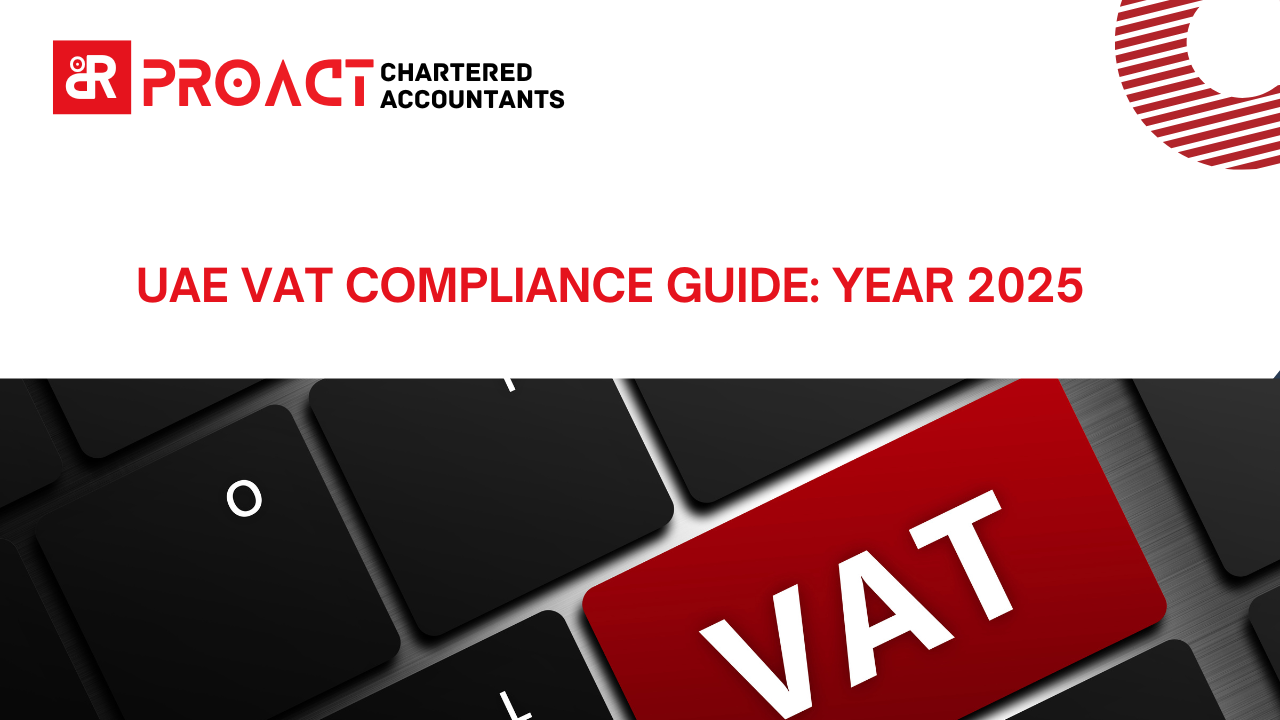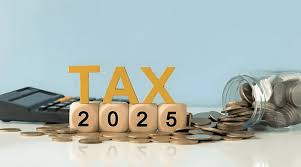Now Reading: Compliance and Reporting Obligations for UAE Property Owners: 2025 Tax Year
-
01
Compliance and Reporting Obligations for UAE Property Owners: 2025 Tax Year
Compliance and Reporting Obligations for UAE Property Owners: 2025 Tax Year

Table of Contents
INTRODUCTION
the United Arab Emirates is crucial for property owners to ensure full compliance and avoid potential penalties. For the 2025 tax year, several reporting obligations and compliance requirements are pertinent, largely revolving around Value Added Tax (VAT) and the relatively new Corporate Tax regime. Individuals and corporate entities, whether resident or non-resident, need to be aware of these responsibilities.
Here’s a breakdown of the key compliance and reporting obligations for
UAE property owners for the 2025 tax year:

1. Value Added Tax (VAT) Obligations:
VAT at a standard rate of 5% was introduced in the UAE on January 1, 2018. Its application to the real estate sector is nuanced:
- Residential Properties:
- The first sale of a newly constructed residential property (within three years of completion) is zero-rated for VAT. This means no VAT is charged to the buyer, but the developer can recover VAT paid on construction costs.
- Subsequent sales and leases of residential properties are generally exempt from VAT.
- Commercial Properties:
- The sale and lease of commercial properties are subject to VAT at the standard rate of 5%.
- Mixed-Use Properties:
- VAT treatment depends on the usage. The commercial portion is subject to 5% VAT, while the residential portion is typically exempt.
- Bare Land:
- The sale of bare land is generally exempt from VAT, unless the land is intended for commercial development.
- Related Services:
- Services like property management, maintenance, and real estate agency fees are generally subject to 5% VAT.
Compliance and Reporting for VAT:
- VAT Registration: Property owners (individuals or companies) making taxable supplies (e.g., leasing or selling commercial properties) exceeding the mandatory registration threshold of AED 375,000 annually must register for VAT. Voluntary registration is possible if taxable supplies or expenses exceed AED 187,500. Non-resident investors making taxable supplies in the UAE may be required to register regardless of the threshold, often needing a tax agent.
- Tax Invoices: Registered property owners must issue valid tax invoices for all taxable supplies.
- VAT Return Filing: VAT returns must be filed electronically with the Federal Tax Authority (FTA) on a periodic basis (usually quarterly, or monthly for larger businesses). The return details the output VAT collected and input VAT recoverable.
- VAT Payment: Any VAT due must be paid by the deadline specified for the tax period.
- Record Keeping: All business records, including tax invoices, credit notes, ledgers, and documents related to property transactions, must be maintained for at least five years (seven years for real estate records as per Cabinet Decision No. 74 of 2023, Article 3). The FTA may request these records for audit purposes.
- VAT on Real Estate for 2025: Property owners should stay updated on any clarifications issued by the FTA regarding VAT treatment for specific real estate transactions. Recent guidance sometimes addresses complex scenarios, and understanding these is crucial.
2. Corporate Tax (CT) Obligations:
The UAE Corporate Tax regime came into effect for financial years starting on or after June 1, 2023. It imposes a 9% tax on taxable profits exceeding AED 375,000.
- Applicability to Property Owners:
- Individuals: Individuals investing in UAE property in their personal capacity are generally not subject to Corporate Tax on rental income or capital gains, as this is considered personal investment income. However, if an individual is conducting a “Business” or “Business Activity” with their property (e.g., extensive, regular, and commercial-scale property development or rental operations) and their turnover from such activities exceeds AED 1 million in a calendar year, they may be required to register for and pay Corporate Tax.
- Corporate Entities: UAE companies (including those in free zones, subject to specific conditions for 0% rate on “Qualifying Income”) and other legal persons holding UAE property are generally subject to Corporate Tax on their net profits derived from these properties (rental income, capital gains). This includes foreign legal entities if they have a Permanent Establishment (PE) in the UAE or derive UAE-sourced income not otherwise exempt.
- Real Estate Investment Trusts (REITs) and Qualifying Investment Funds (QIFs): Specific rules and potential exemptions or beneficial treatments apply, often clarified through Cabinet Decisions (e.g., Cabinet Decision No. 34 and 35 of 2025, concerning nexus rules for non-resident investors and conditions for QIFs). These decisions often outline conditions such as dividend distribution thresholds (e.g., 80% distribution of immovable property income within 9 months of the financial year-end) for investors to potentially avoid a direct taxable nexus.
Compliance and Reporting for Corporate Tax (2025 Tax Year):
- CT Registration: All entities (including individuals meeting the business turnover threshold) subject to Corporate Tax must register with the FTA and obtain a Tax Registration Number (TRN). The deadline for natural persons conducting business activities in 2024 and exceeding the AED 1 million turnover threshold was March 31, 2025. Similar deadlines apply based on when an entity becomes subject to CT.
- Financial Year: Businesses need to determine their financial year for CT purposes.
- Bookkeeping and Accounting: Maintaining proper accounting records and audited financial statements (where applicable) is mandatory. These records must accurately reflect the company’s income and expenditure.
- CT Return Filing: The CT return must be filed electronically within nine months from the end of the relevant financial year. For example, for a financial year ending December 31, 2024, the CT return is due by September 30, 2025. Even businesses qualifying for Small Business Relief (revenue below AED 3 million and meeting other conditions) or a 0% CT rate must register and file a CT return.
- CT Payment: Any CT due must be paid within nine months from the end of the financial year.
- Transfer Pricing: If a property-owning company has transactions with related parties or connected persons, UAE transfer pricing rules (aligned with OECD guidelines) will apply. This requires maintaining transfer pricing documentation and ensuring transactions are at arm’s length.
- Small Business Relief: Businesses with revenue below AED 3 million in the relevant tax period (and meeting other conditions) can apply for Small Business Relief, treating their taxable income as zero. This relief is currently available for tax periods ending before or on December 31, 2026.
3. Municipal Taxes and Fees:
- Property Registration Fees: These are one-time fees paid to the respective land department when a property is bought or sold (e.g., 4% of the property value in Dubai, 2% in Abu Dhabi). While not an ongoing “tax,” compliance with payment is necessary to legally register ownership.
- Housing Fees/Municipal Taxes on Rent: Some Emirates levy a fee on tenants, which is collected through utility bills (e.g., 5% of the annual rent in Dubai for residential properties, 10% for commercial). Landlords are not directly reporting this but should be aware of it as part of the rental ecosystem.
4. Anti-Money Laundering (AML) and Counter-Terrorist Financing (CTF) Compliance:
While primary AML/CTF reporting obligations fall on real estate agents, brokers, developers, and legal professionals involved in property transactions, property owners (especially those involved in frequent or high-value transactions) should be aware of increased scrutiny.
- Ultimate Beneficial Ownership (UBO): Companies owning property must maintain and submit accurate UBO information to the relevant authorities.
- Source of Funds: Owners may be required to provide evidence of the legitimate source of funds used for property purchases.
- Suspicious Transaction Reporting: While not directly on all owners, those dealing in property as a business might have obligations if they encounter suspicious activities. The UAE has significantly enhanced its AML/CTF framework, and all parties in the real estate sector are expected to adhere to high standards of due diligence.
5. General Compliance and Record-Keeping for 2025:
- Updating Information with FTA: All tax registrants (for VAT or CT) must keep their information updated on the FTA’s EmaraTax portal. Any changes to business details (name, address, activity, legal structure, etc.) must be notified to the FTA within 20 business days. The FTA offered a grace period until March 31, 2025, for registrants to update their records without penalties for past failures to notify.
- Accurate Record-Keeping: Maintaining comprehensive and accurate records is paramount. This includes:
- All invoices (sales and purchases)
- Contracts and agreements related to property
- Bank statements
- Tenancy agreements
- Proof of expenses
- VAT and CT calculations and filed returns
- UBO registers (for companies)
- Any correspondence with the FTA.
6. Obligations for Non-Resident Property Owners:
- VAT: Non-resident property owners making taxable supplies in the UAE (e.g., leasing commercial property) generally need to register for VAT, often through a tax agent.
- Corporate Tax: Non-resident legal entities may be subject to UAE CT if they have a Permanent Establishment in the UAE or earn UAE-sourced income that is not otherwise exempt. Recent Cabinet Decisions (e.g., No. 35 of 2025) provide clarity on when non-resident juridical investors in QIFs and REITs might establish a taxable “nexus” in the UAE based on their real estate investments.
- Tax Residency Certificate (TRC): Non-resident owners may need a TRC from their home country to claim benefits under a Double Taxation Avoidance Agreement (DTAA) with the UAE, or a UAE TRC if they qualify and need to prove UAE tax residency to another jurisdiction.
7. Consequences of Non-Compliance:
The FTA imposes significant administrative penalties for non-compliance with tax laws. These can include:
- Late VAT/CT registration: AED 10,000.
- Late VAT/CT return filing: Penalties accrue monthly.
- Late VAT/CT payment: Penalties apply.
- Failure to maintain proper records: AED 10,000 for the first instance, AED 20,000 for repeat violations.
- Incorrect tax returns: Penalties can be percentage-based.
- Failure to update information with FTA: Penalties apply after the grace period.
Key Takeaways for the 2025 Tax Year:
- Stay Informed: Tax laws and regulations can be updated. Property owners should regularly check FTA publications and seek professional advice.
- Assess Your Status: Determine whether your property activities subject you to VAT and/or Corporate Tax.
- Maintain Meticulous Records: This is the foundation of good tax compliance.
- Meet Deadlines: Be aware of registration, filing, and payment deadlines. The FTA has communicated certain grace periods, but relying on these should not be a standard practice.
- Seek Professional Advice: Given the complexities, especially with Corporate Tax and cross-border implications, consulting with a qualified tax advisor in the UAE is highly recommended to ensure all compliance and reporting obligations are met for the 2025 tax year.
CONCLUSION

By understanding and adhering to these obligations, UAE property owners can ensure they remain compliant with the nation’s evolving tax framework.
WATCH MORE: https://www.youtube.com/watch?v=TFeX5cTXxRM
READ MORE: Impact of International Tax Agreements on UAE Property Investments in 2025






















